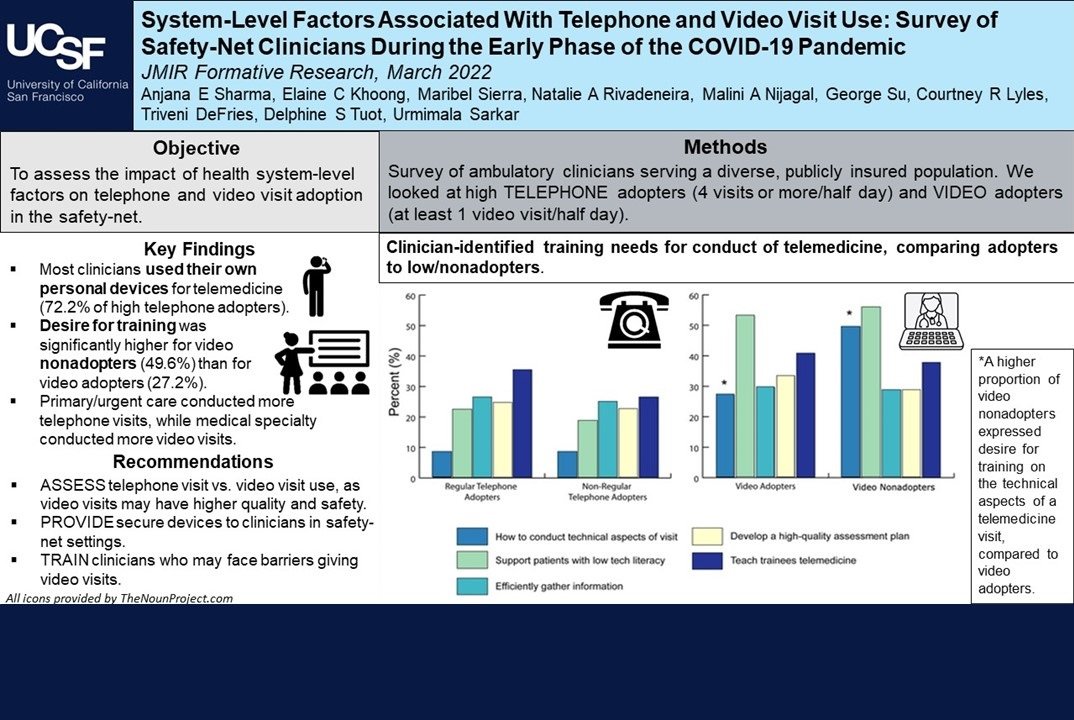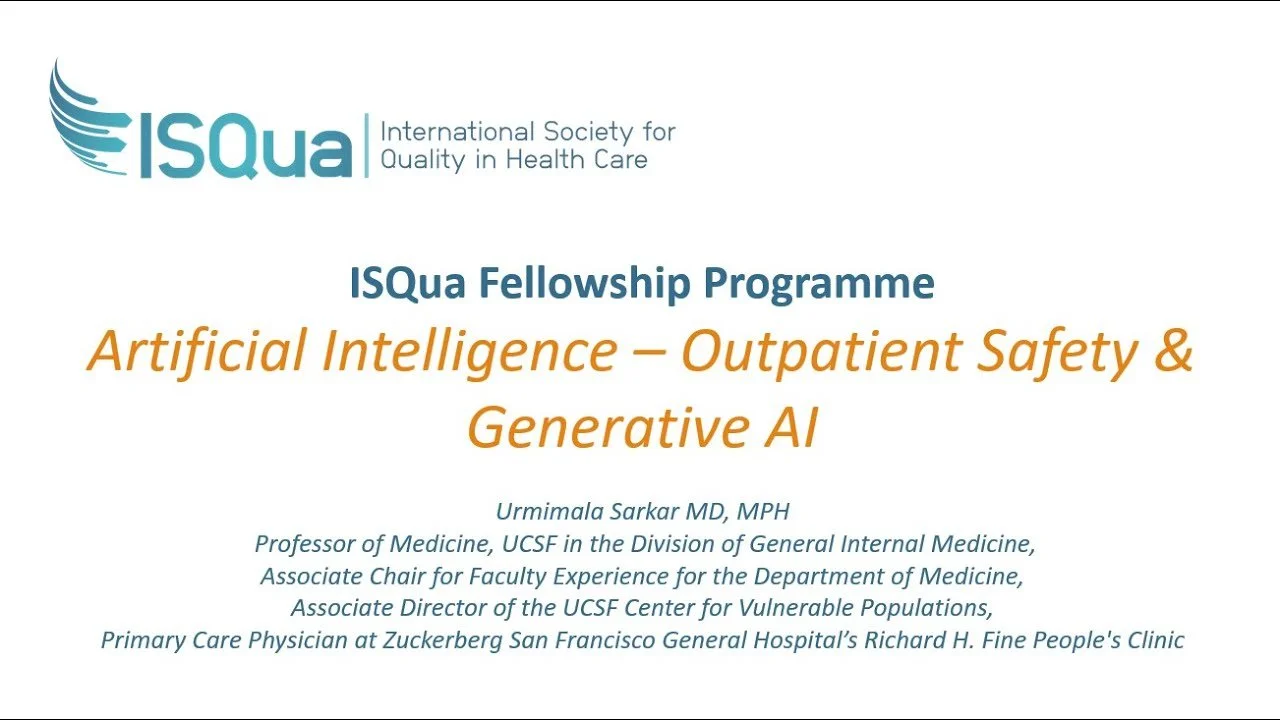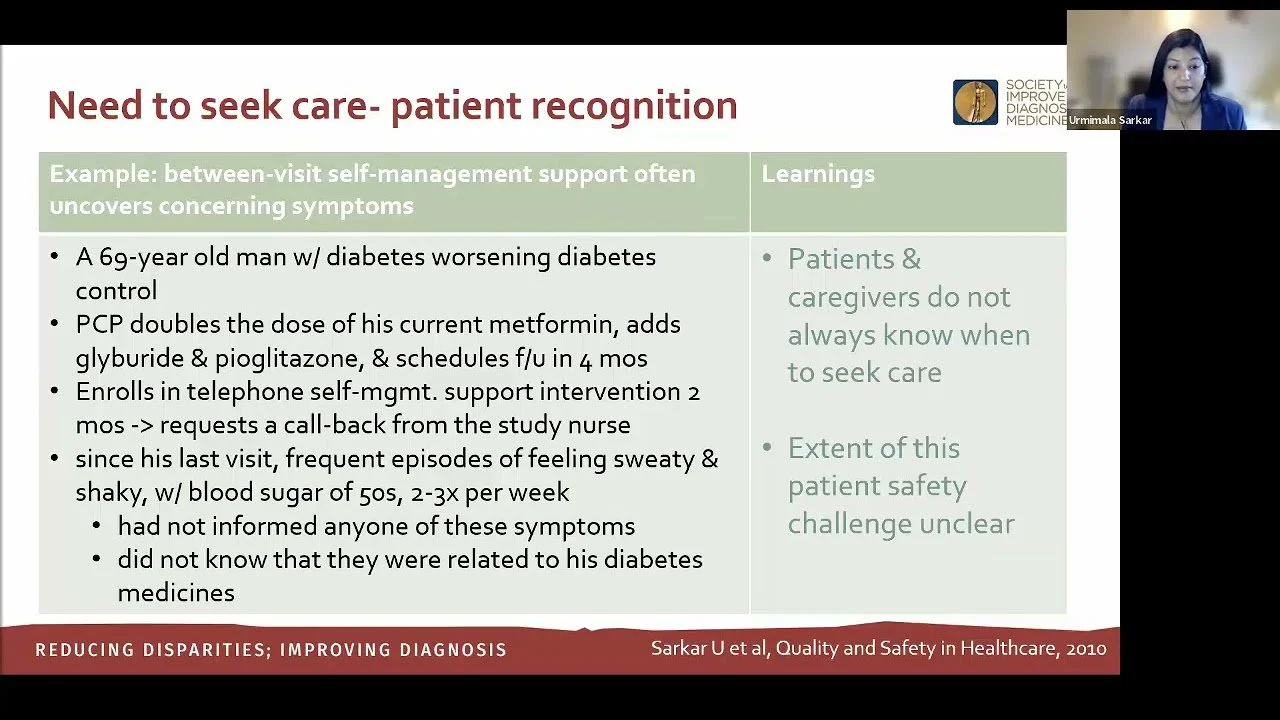Patient Safety
Image provided by UCSF Health.
Overview
According to the World Health Organization (WHO), patient safety concerns emerged as health care systems grew increasingly complex, generating unintended patient harm in health care facilities. The WHO also states that a focus on patient safety aims to prevent and reduce risks, errors, and harm that occur to patients during health care. Notably, various multilevel challenges at the individual, clinic, system, and policy levels affect patient safety, with medication errors, diagnostic errors, and health care associated infections comprising some of the most common events.
Despite strides, improving patient safety remains a critical issue for health care systems. In particular, outpatient safety remains understudied, especially given the majority of health care occurs in ambulatory settings. Our laboratory uses implementation science and systems engineering methodologies to improve outpatient safety locally and across the state.
Current Projects:
RecoverX
The purpose of this project is to support Recovery Exploration Tech, Inc. (RecoverX) in applying their innovative software platform to improve patient safety by validating RecoverX’s diagnosis and next best action AI engine on retrospective data.
Selected Completed Patient Safety Projects:



Patient Safety Presentations:
Dr. Sarkar Presents on Outpatient Safety and Generative AI
In outpatient care, there are persistent outcome disparities and care gaps. While AI could potentially address these issues, there are also risks and limitations associated with its use by clinicians. This webinar aims to help participants understand the potential role of AI in outpatient care, the benefits and risks it may bring, and offers recommendations for clinicians and health systems interested in implementing AI into their settings.
2015 Patient Safety Podcast - Get the Diagnosis Right
Listen to Dr. Sarkar and her colleagues Elizabeth McGlynn, Ph.D. (Director, Center for Effectiveness and Safety Research, Kaiser Permanente) and Kathryn McDonald, PhD (Bloomberg Distinguished Professor, Johns Hopkins University) discuss diagnostic safety at the Commonwealth Club in San Francisco, recorded November 10, 2015.
2022 JAMA Author Interviews Podcast - Achieving Diagnostic Excellence
Listen to Dr. Sarkar and her colleagues Jonathan H. Chen, MD, PhD (Stanford Center for Biomedical Informatics Research, Stanford University), and Harvey V. Fineberg, MD, PhD (Gordon and Betty Moore Foundation), discuss issues affecting diagnostic excellence, the emergence of artificial intelligence–driven tools, and ways to make the diagnostic process patient-focused.
Dr. Sarkar Discussed the Role of Communication and Implicit Bias in The Diagnostic Process
Implicit bias occurs when rather than remaining neutral, we have a preference (or aversion) to certain individuals or groups. As the diagnostic process is inherently complex, discrepancies in interpreting patient symptoms and providing treatment must be eliminated to achieve health equity.





